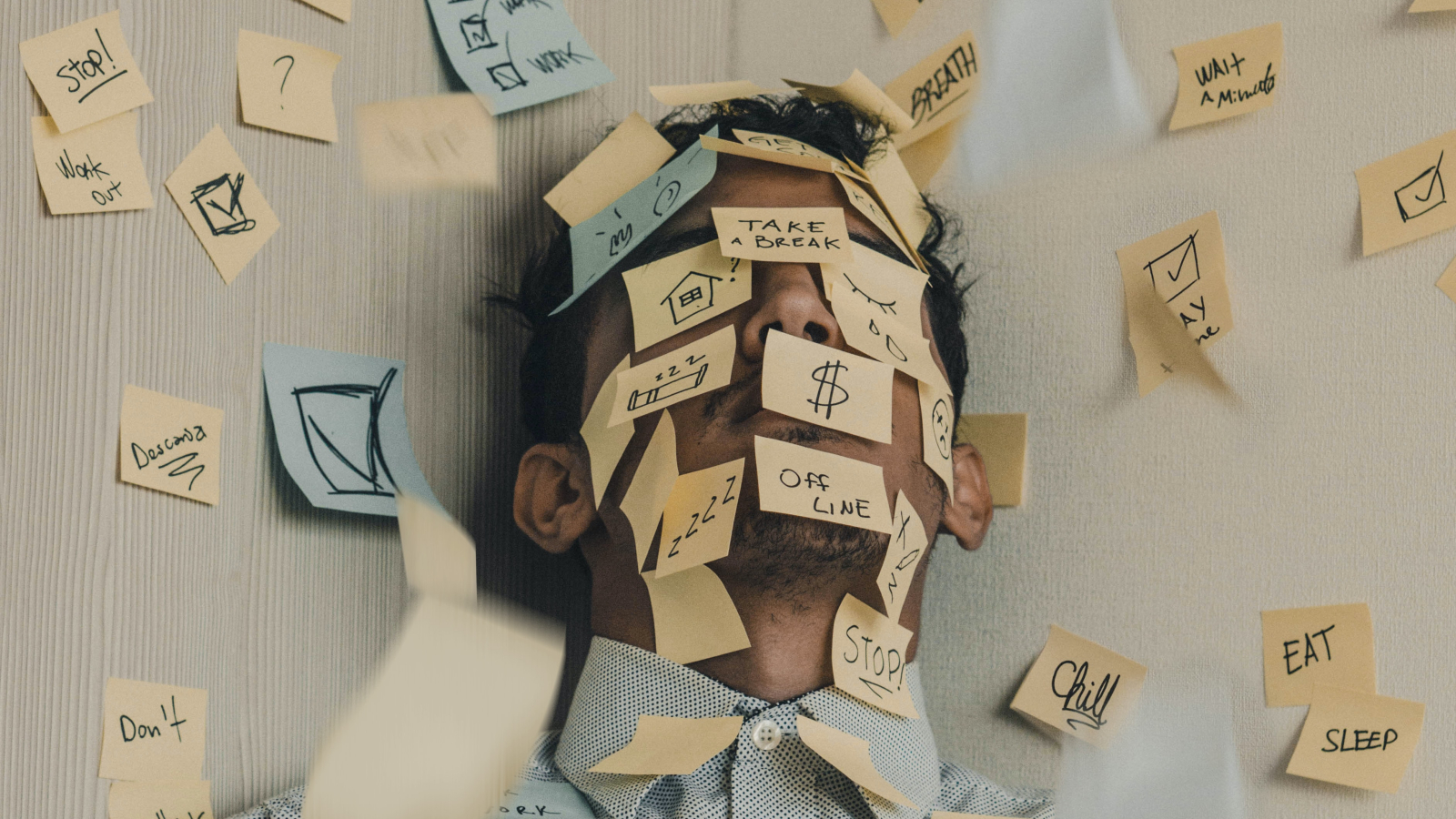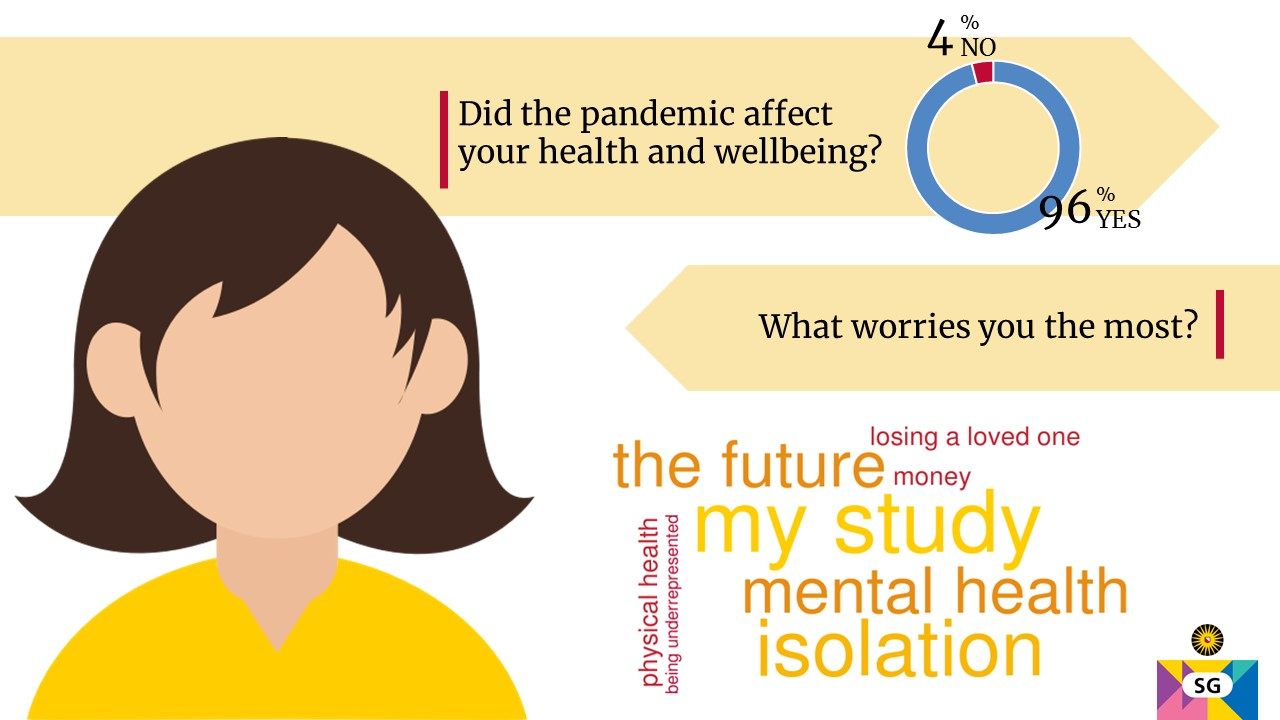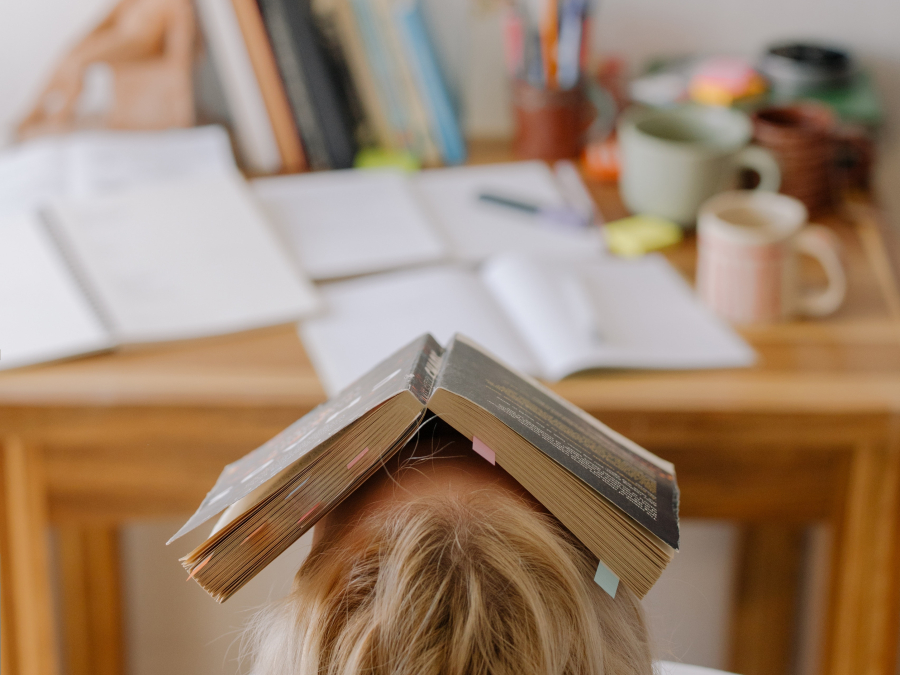Be kind to yourself

It is not easy to be a student in times of a pandemic. Classes are mostly online, in that dorm room of ten square metres where you eat, watch movies, and sleep as well. All bars and cinemas have been closed for months, so not much of that vibrant student life is left. And the future is becoming more and more clouded with every new press conference. Not really the 'best time of your life'.
Although the CBS states that the mental health of adolescents in 2020 does not significantly differ from past years, one in three students rate their lives with a "F". "Broken and defeated" or "Students feel vulnerable and stressed", the newspapers headlined. Students protested in Amsterdam and Utrecht, and students spoke up out about the strain of this pandemic on their mental health in talk shows like Jinek and Op1. Hearing this, one might be inclined to think that the current students are indeed destined to become a "lost generation". How true is this? What is stress anyway? And can we counteract it ourselves?
"In the beginning I did not really notice any difference, but now I'm really starting to feel the effects of this pandemic on my mental health. Especially in my education and daily mood I notice it."
- Student Thijs

Concern and insecurity
I have asked students whether the current pandemic has affected their wellbeing, and 96% answered with "yes". They worry a lot, about their studies (26%), their social life (24%), their mental health (18%), and the future (18%). Student Emma tells: "Studying is quite lonely nowadays. It is not only less fun, but it also fosters the feeling that you're on your own in your studies." Another student agrees: "I am not sure I will pass this year. I find it hard to stay focused and I don't feel connected to the people who I need to learn from."
Student psychologist Jerre Mijnarends (UU) recognises these feelings: "I mainly notice that the pandemic worsens some of the problems that students already have: they deal with performance- or study pressure, or financial problems." That is not surprising, given that this period of life is characterised by constant change and new experiences. It is a vulnerable period, fuelled by ever-increasing demands that modern society poses on students. "The persistent illusion of success and failure as private property is destructive. (…) As such, self-doubt and humiliation loom for those who do not excel," wrote De Correspondent. This pandemic acts as a magnifying glass for concerns and insecurities. And that is fertile soil for stress.
"Ever since the lockdown in October it went downhill. Winter combined with not being able to do anything definitely took its toll. I feel really restless, as if my life has stopped."
- Student Nine
Off balance
The first question Jerre asks the students that come into his office is: 'what exactly is it that makes you stressed?' Understanding the underlying cause of those feelings is critical if you want to counteract them. However, "awareness does not always lead to a decrease in symptoms, because stress is a natural, unconscious reaction of your body," Jerre emphasises. Neuroscientist Milou Sep (UMC Utrecht) explains: "Stress is actually a positive reaction of the body. It enables you to respond in an appropriate manner in the face of danger. Within a few seconds, the hormone adrenaline is activated. This causes all the sensations you probably recognise when you feel stressed. Think about an elevated heart rate or clammy hands. A couple of minutes later, the stress hormone cortisol rises. This promotes the release of energy (glucose) in your body, so you are prepared to take action." Interestingly, the stress system not only becomes activated in the face of actual danger, like when you have to give your final presentation in front of the entire class. A challenging situation can also be completely made up, for example when you worry about not making a deadline or about the fact that your crush has not called you for 2 days, 14 hours and 7 minutes.
A healthy stress system is dynamic: it turns on and off when needed. After a prolonged period of stress, relaxation must follow. Before this pandemic you could go to the bar with your friends after that difficult exam or you could blow off steam in the gym. Unfortunately, that is no longer possible with all the restrictions in place. The precarious balance between stress and relaxation is now off, and that might cause you to feel different: you might be overly irritable, feel down, or are less able to focus. Is there anything you can do about that?
"During this pandemic I was at home a lot, not being able to see my friends or to exercise as I used to do. My mental health has certainly had its ups and downs."
- Student Bart
Take good care of yourself
After nine months of nonstop working during my master's internship, my supervisor at the time said to me: "Be kinder to yourself." Even now, when I am not feeling 100%, I think of those words and watch a Disney movie or go for a walk in the woods. Relaxation is the key to counteract feelings of stress, both Jerre and Milou agree. Go for a run, do breathing exercises, run yourself a bath, hang out with your friends, or have a quick cry: what works best against stress is different for everyone. Luckily, there are many online tips to lower feelings of stress. I have collected five:
- Keep in touch with the people around you. Talking helps, a fresh look on the situation might provide new insights. Although it is not always possible to meet up in real life, there are plenty of other possibilities: call, app, zoom, or send an old-fashioned letter.
- Go outside. It is not surprising that the Ommetjes app has become extremely popular in our country during the pandemic. Walking in nature does not only boost your immune system (quite handy nowadays), but also activates the happiness hormone serotonin and decreases the stress hormone cortisol.
- Structure your days. Especially in times of uncertainty, a daily routine provides a sense of control: it offers support and reduces feelings of stress. So, stick to a sleeping schedule, eat at regular times, and take enough breaks.
- Stay away from the news. Those daily updates about the pandemic are stressful enough without a constant reminder.
- Do not set the bar too high. Be happy with all the things you manage to do on a day. Not able to cross off every to-do on the list? No worries, tomorrow is another day.
This pandemic has put an obligatory stop on our daily lives. While that might be bothersome on many levels, it also forces us to ask ourselves how we are doing. And that is a good thing, as it might provide us with some useful insights. So, start by asking yourself: what is important to me? What gives me energy of what not? What makes me happy in life? Milou: "I think this period might also be extremely helpful for us. We learn to recognise our body's stress signals, how to cope with them, and how to set priorities. Those insights will stay with us for the rest of our lives."
---
How is it really going with our students? In this series of five articles, I talk with students and scientists in search of answers, scientific explanations, and useful tips. What impact does the pandemic have on the wellbeing and development of students? How does a lack of touch and intimacy affect you? How do the students like the online classes? And what does the "new normal" look like?








